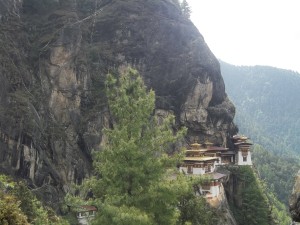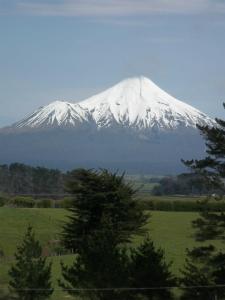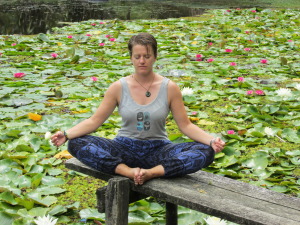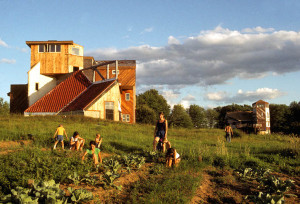"I have arrived. I am home." It is the mantra of Plum Village or in French “Je suis chez moi, Je suis arrive”. It is the mindfulness retreat in the south of France founded by Vietnamese Zen Monk Thich Nhat Hanh and where I recently spent a week.
I’d been on retreats before but I still didn’t know what to expect as I was new to this tradition. I was looking forward to some peaceful time, living simply, relaxing in the sun and being disconnected from phones and email.
The weather surprised me as it rained for two days on arrival and although it was August overnight temperatures were low. Not ideal camping conditions! This taught me my first lesson. How the weather affects my mood and the need to cultivate happiness based on your internal state not your external circumstances. As much as I’d love to, I cannot control the weather!
It took me a couple of days to settle in, to get used to the schedule and my surroundings. The day started at 5.30 am, there was morning stretching and sitting meditation followed by a dharma talk and breakfast. We were silent until after breakfast and other periods of silence ensued during meal times and in the evenings.
Periods of walking meditations, free time, yoga, tai chi and qi gong were scattered throughout the afternoon but everything was optional. There was also the chance to get involved in sangha communities and be of service by engaging in working meditations in the village. Anything from gardening, cleaning to preparing food.
Throughout the day bells would ring. A sign for everyone to stop what they were doing, return to themselves and focus on the breath. Even the animals seemed to be affected by the peaceful energy that filled the village. Cats would roam in and out of a yoga class of 200 people and a magpie would come and check out bags, sit on our heads and speak to us as we sat in meditation. It was perhaps something I think could only happen here.
I was surprised at the amount of people there, it was busier than I expected but the segregation of retreatants into smaller communities or ‘families’ and the periods of silence meant that it never seemed as busy as it really was. Although I am not keen on big crowds I felt optimistic that so many people were waking up and that as more and more people learned traditions like this it is really possible that we will change the world. This thought nourished my soul.
People came from all over the world to share their own stories, struggles, journeys and as it appears amazing musical talents. Impromptu concerts of guitar, piano, violin, mouth organ, bagpipes and singing seemed to pop up all over the hamlet during the afternoons. Most evenings after dinner in our families, we’d gather for songs and would part take in dharma sharing where people were free to share their thoughts, feelings and inspiration with the family, without judgement.
It was a great opportunity to practice deep listening and learn from the wisdom we were surrounded by. The monks in our family also offered wisdom and this, in addition to the morning talks, was priceless. To my surprise people really opened up in these sessions, even though we had only met for the first time on this retreat and by the end of the week were had a connection just like a family. This particularly surprised me as I had not even spoken to some of these people yet I felt deeply connected to them and a great love between us that I have not previously known for strangers I have known for less than a week and will most likely not meet again. This taught me the importance of communication without words, and in a world that can’t stop talking this was eye opening.
I had read and wrote a lot about mindfulness and considered myself to be well versed on the topic but this week has taught me the difference between knowing something intellectually and understanding the theory and then really living it, experiencing it, feeling it and knowing it in your heart. Mindfulness is meditation in daily life, it’s being in the present moment, without judgement, being awake, alive and aware and coming home to yourself and this week felt like that had truly happened. I was able to see the beauty in every moment, even if that was the rain falling from the leaves of the tree, the frogs on the lily pads, the earth under my feet or the taste of a carrot fresh from the garden.
Everything became a meditation, each task was turned into an opportunity to turn inwards and be in the present moment. Whether it was eating lunch, drinking tea, walking, helping on the farm or sitting in the meditation hall.
The meals are light, small, pure and clean, made up of grains and vegetables and strictly vegan. I experienced a headache for the first couple of days as my body got rid of its toxins but after that felt amazing. The food was all from the organic farm on site and we were lucky enough to spend our working meditation time down on the farm.
Helping to pick, plant, weed and really connect with the earth and what we were eating. In the same way the walking meditations really allowed us to connect with nature, listen to the wind in the trees, the birds sing and the feeling of sunlight on my face. As I adjusted it felt like a fog had cleared from my mind but also my vision. I was seeing so much more clearly both with my eyes and my heart. The colours of the natural environment I was in amazed me and the food tasted devine. It was like eating for the first time and it filled me with gratitude.
Rarely in our busy lives do we take the time to truly enjoy our food, to think about where it has come from. The sun, the rain, the earth that has made it. The people who have tended it, picked it then cooked it for our enjoyment. I also found that by taking my time the food not only tasted better but filled me up despite the quantity being a lot less than I was used to.
My relationship with food has never been a healthy one but coming here and appreciating such clean food, eating in moderation, sharing and being connected to the cultivation of this food and the nature that allows it to nourish us was truly awe-inspiring. Mindful eating is one thing I will be taking back to my daily life, but there is so much more.
This focus on introspection led to the arising of many emotions, long hidden in our world of busyness and distractions. One day out of nowhere I experienced my own breakthrough. I had been working on (unsuccessfully) letting go of the need to control, the need to know, planning the future and working on ‘goals’ to achieve. Whilst a certain amount of planning is necessary as we navigate life, spending too much time worrying about the future robs us of our present moment and in reality we can never predict the future as tomorrow never comes. This is something that had been part of my life for many years and the fear of uncertainty, not knowing and not being in control was something that faced me most days recently.
As I sat in the Buddha garden, overlooking fields of vines, pine forests and sunflowers a distant church bell rang and a weight lifted from my shoulders. Out of nowhere, and so simply I got it. “I don’t need to know, because we never can know” these words were spoken to my heart and for the first time I understood. This time it wasn’t just an intellectual understanding of the words, I could feel them in my heart and at once my anxiety about the future disappeared. Words I’d been reading and saying to myself for so long now made sense, like a penny had dropped and I let go.
I am excited by the opportunities that I am open to and the freedom this gives me and I trust that I will feel what’s right as I navigate each moment as my future unfolds as it’s meant to be.
We don't always need a plan. Sometimes we just need to breathe, trust, let go and see what happens.
Letting go of the future has increased the time I spend in the present, which is the only moment we have. Life is the present and this is where we are at home. This has been another major breakthrough; I have learned that I have arrived, I am home.
I have been a nomad since I first started travelling and went pack backing to Australia in my early twenties. I always felt like I was travelling in search of something and I was hooked on the freedom being a nomad offered. As a result of this lifestyle I have become accustomed to being at home wherever I happen to be. Home is wherever I am, because home is a place within. It’s more about soul than it is soil and it’s not a physical place I can point to but something I feel deep inside my heart.
It may well be that it is easy to be mindful at a place like plum village or hiking through the French countryside with like minded people whilst your dinner is cooked and your problems are left behind. What about real life? When we return to our home, jobs, traffic jams, emails and social activities? When we’re exposed to busyness, anger and suffering. How then can we take what we’ve learned and continue to be mindful?
Because mindfulness comes from within, it is something that you can carry with you 24/7. It is something you can turn to regardless of what chaos is going on around you. It is a skill that can be applied to any task and a place to come back to when you need stillness. It is your home from home and your place of peace and whilst these conditions are ideal for practice the more we practice the better we get making it easier to take what we’ve learned back into our daily lives.
Mindfulness is acceptance of what is, without judgement, being yourself, at home with yourself and seeing the beauty in every moment. It teaches us to slow down and notice more, this leads to a true happiness that arises from within. Independent of external circumstances. Mindfulness brings us back to the present moment and back to ourselves, the home within.
















